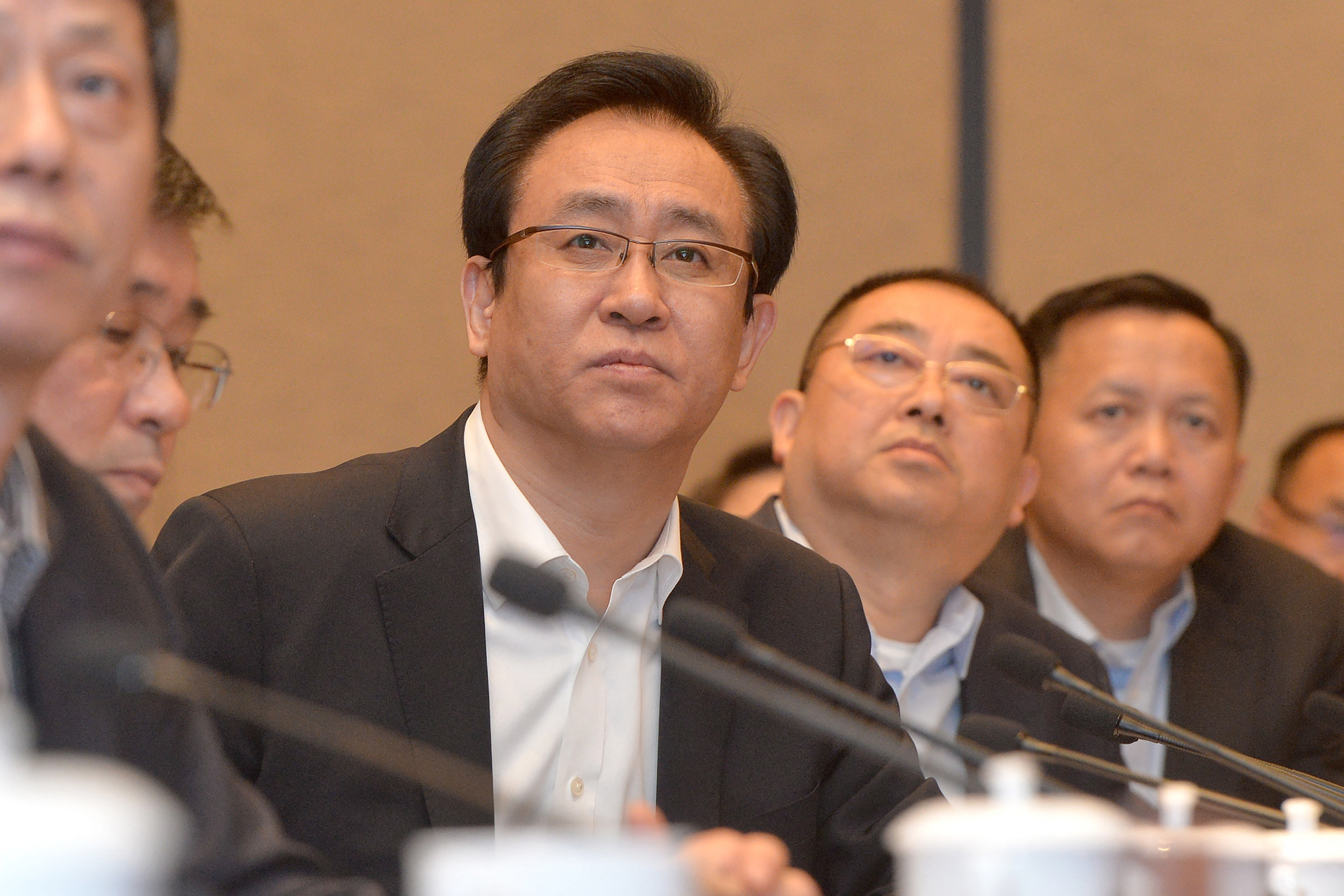The Chinese government has denied any knowledge of the legal quandary facing Hui Ka Yan, the founder and CEO of Evergrande who was put under police control this week in the latest episode in the mega developer’s years-long fall from grace.
China’s Evergrande Group announced on Thursday that Hui, its chairman, was suspected of unspecified “illegal crimes,” and that mandatory action had been taken in line with the law. The statement also said trading in the firm’s shares would be halted until further notice and advised securities holders and potential investors to “exercise caution.”
Evergrande is the world’s most indebted property developer, with liabilities in excess of $300 billion. When it was unable to pay interest on these debts in 2021, it sent China’s property market into a liquidity crisis. Some analysts have called it China’s “Lehman Brother’s moment,” a reference to the U.S. financial crisis in 2008.
Hong Kong-based Hui is now under police control at a designated, but unspecified, location in mainland China, Bloomberg reported on Wednesday, citing unnamed individuals. In China, police control is considered less serious than detainment or arrest.
Asked to clarify the 64-year-old situation on Thursday, China‘s Foreign Ministry spokesperson Mao Ning told a regular press briefing that said she had no information to offer.
Hui joins a list of half a dozen tycoons to be investigated for financial crimes in the last decade, coinciding with Chinese President Xi Jinping‘s rise to power and his far-reaching anti-graft campaign in the public and private sectors.
“It is unclear why Hui is under police surveillance, but it may signal certain negotiations demanded from the government. The latest development has disrupted [Evergrande’s] hope of [debt] restructuring,” Gary Ng, an economist with the international financial services provider Natixis told, Reuters. No company was “too big too fail” in China, he said, and that he doubted any bailout was forthcoming coming for the troubled property giant.
The current freeze on Evergrande shares came just one month after trading had resumed following a 17-month suspension. Within minutes of the resumed trading on August 29, shares plummeted 87 percent as investors jumped at the chance to ditch the toxic stock.
With the property developer’s hopes of restructuring now in jeopardy, liquidation appears more likely.
Reacting to the bursting property bubble—and to reel in speculation and overleveraging—the Chinese government in late 2020 introduced the “three red lines,” or guidelines meant to curb risky speculation and lending. However, the result was widespread defaults and a precipitous drop in home prices.
As much as 70 percent of household wealth in China is tied up in property, according to estimates cited in an August joint report by the Asia Society Policy Institute and the Stanford Center on China’s Economy and Institutions. Meanwhile, property accounts for about 30 percent of China’s GDP.
While Evergrande was overleveraged, and the three red lines compounded the market’s woes, “the most important driver behind China’s boom-bust has been a weakening in the fundamentals in housing demand for the longer term, just as the housing bubble was heating up,” Guonan Ma, a senior fellow at the Asia Society Policy Institute, told Newsweek.
These eroded fundamentals included slowing productivity, diminishing returns on overly ambitious investments, a post-peak population, an aging workforce, slowing urbanization, and a spike in the average household debt-to-income ratio, Ma said.

